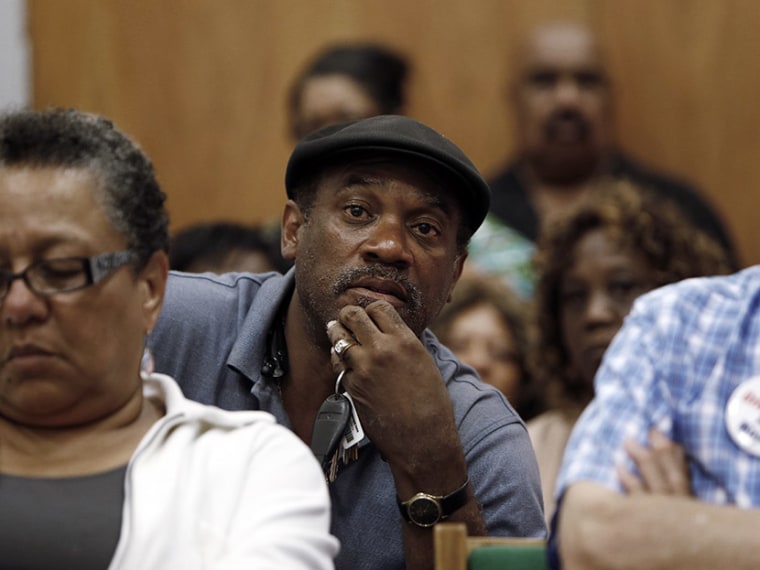UPDATED
There are months to go before Detroit residents find out whether their city is eligible for Chapter 9 bankruptcy. In the meantime, those who want to prevent the largest municipal bankruptcy in American history are seeing their legal options narrow.
An early attempt by an Ingham County Circuit judge to block the bankruptcy on state constitutional grounds fizzled in late July, when a federal court put that ruling on hold. Now it seems that all legal challenges to the bankruptcy must flow through the federal bankruptcy judge himself, Steven Rhodes. Monday was the deadline for filing objections to the bankruptcy in Rhodes' court; he will consider those objections in a hearing set for October 23.
The Detroit Police and Fire Retirement System (PFRS) filed one such objection right before the deadline, spokesperson Bruce Babiarz told MSNBC. For this objection, they are using much the same legal reasoning accepted by the Ingham County Court: Because Article 9, Section 24 of the Michigan state constitution calls pension benefits "a contractual obligation ... which shall not be diminished or impaired," PFRS argues any bankruptcy is unconstitutional which does not adequately protected those benefits against cuts.
Republican Gov. Rick Snyder "did not condition his authorization [of bankruptcy] on preserving the Michigan constitutional protection of accrued pension benefits," said Babiarz. The pension board argues that Snyder exceeded his authority by allowing a bankruptcy without explicitly saying that retirement benefits must be protected.
PFRS and the city's General Retirement System and their beneficiaries would have the most to lose if Detroit's bankruptcy steamrolls ahead. The office of Detroit Emergency Manager Kevyn Orr estimates that the city owes $3.5 billion in pension obligations, meaning that public employee retirement benefits would likely face a significant "haircut" during the Chapter 9 proceedings. The public retirement systems contest Orr's $3.5 billion figure, saying that they are only underfunded by around $650 million.
Wayne State Law School Dean Jocelyn Benson predicted that Judge Rhodes would rule one way or another on the constitutional question even if he rejected PRFS' attempt to block the bankruptcy altogether.
"I would hope that he would conclude that Detroit being eligible for bankruptcy is irrelevant to this constitutional provision," she said, meaning that the bankruptcy could still go forward but with a requirement that pension benefits remain untouched.
"What we need now is for the federal court or the state financial court to reaffirm that pensions cannot be touched," said Benson.
